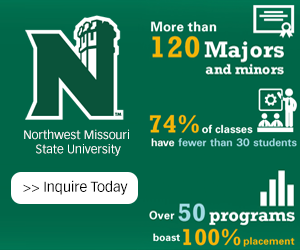Broadcasting is a glamorous career, and requires a great education to break into the field. How exactly can an international student tell a great broadcasting school from a merely passable one? An excellent school for broadcasting stands out with a comprehensive curriculum, availability of student radio and television stations, experienced faculty, and other factors discussed in this article.
Broadcasting is, to many people, a glamorous career. From chasing a lead as a reporter to overseeing a radio show as producer to putting together a web series, broadcasting offers many ways to reach people and influence their lives. Success in such an important field depends on a strong foundation of education. But how should international students go about their search for a great broadcasting school? This article will get you started in your search for the top broadcasting schools in the US.
Pick a Field
One very important aspect in finding the best schools for broadcasting is to decide what exactly about broadcasting appeals to you. Are you interested in television? Radio? Broadcasting via the internet? What exactly do you plan to do in the field? There are multiple roles both in front of the camera/microphone and behind the scenes that require very different skill sets, such as reporter, cameraman, producer, editor, writer, and many more. Each of these jobs can even vary wildly depending on the medium (radio, television, film, and web), the location, and the workplace. The more specifically international students know what they want to do within broadcasting, the more they can narrow their search to the specific schools and programs that offer that area of study.
This hardly means that to find one of the top broadcasting schools in the US you need to decide on your career right now! If you're just generally interested in broadcasting and want to study all aspects of this exciting field, your first step is to check out the curricula of schools to make sure they offer a holistic approach. Any school with a "broadcasting" major is likely to give you this well-rounded perspective, but others such as "broadcast journalism" or programs nestled within other majors such as "communications" may only focus on some, not all, aspects of broadcasting. A well-rounded curriculum at the best schools for broadcasting will touch on all media involved in broadcasting – that's film/television, radio, and the internet – and expose you at least a little to all aspects of the broadcasting process, including writing, producing, editing, handling technology such as cameras and editing systems, and appearing in front of the camera and on the microphone. If you're looking for an all-inclusive broadcasting education and find a school that doesn't offer any of these things, tread very carefully.
Find Schools that Offer Hands-On Experience
One of the best ways that top broadcasting schools in the US offer real-world experience to their students is through school radio and television stations. However, the facilities, equipment, and experienced staff required to run such stations is expensive. Because of this, the presence of radio or television stations at a school is not only an opportunity for that school's students, but also a sign of that school's commitment to its broadcasting program.
Research the Faculty
p>Another consideration for international students is the level of professional experience within the faculty. This issomething to turn to once you've narrowed down your search a little, as it takes some deeper digging to find out.Find the list of faculty for each of your schools and take a look at faculty bios. Have your prospective professorsworked in broadcasting themselves? While amount of experience certainly doesn't translate directly to qualityinstruction, a person with little to no practical experience won't be able to teach nearly as well in such a hands-onfield as broadcasting. As a general rule, the more experienced the people teaching you, the better.As an added bonus, by learning from persons involved in the world ofbroadcasting, you get a head start on your career networking.Think Outside the Box
International students should also be aware that some of the best schools for broadcasting are not just those offering a conventional 2- or 4-year college experience. Especially if you're looking to streamline your broadcasting education without the other varied requirements common to a traditional university or college experience, consider a more specialized program just focusing on broadcasting.
Searching for the top broadcasting schools in the US can be an intimidating prospect, but with these weapons at your disposal, you're ready to jump in. Remember to consider curriculum, student radio and television stations, faculty experience, and even non-traditional programs to help you narrow your search and pinpoint the exact right program for you!

